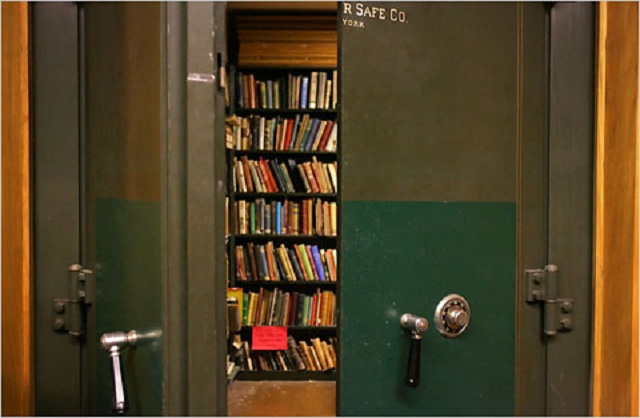The Government’s Extremism Bill will do little to prevent extremism and much to undermine democracy and civil liberties Comment
New in Ceasefire, Politics - Posted on Thursday, June 2, 2016 0:11 - 1 Comment
By Katy P. Sian

“The Prevent strategy has turned Muslim students reading books in their university libraries into suspects.”
The Counter Extremism and Safeguarding Bill (2016) introduced in last month’s Queen’s speech, demonstrates that the government has still not learned how to balance liberty and security in a democratic society.
There are a number of issues arising from the various proposals set out in the bill. Firstly the government has, once again, failed to provide a clear definition of ‘extremism’ that can survive legal scrutiny or challenge. As it stands, under the current vague definition, the most banal or benign of behaviours can be easily interpreted to invoke a worldwide Islamist conspiracy.
This is not speculation: We have already seen this in action on the ground, in the shape of the government’s Prevent strategy, which has turned Muslim students reading books in their university libraries, and Muslim school children making spelling mistakes, into suspects accused of ‘suspicious’ activity.
An examination of counter-terror legislation and policy provides ample evidence that they are targeted primarily, and explicitly, towards the expressions coming out of the Muslim community. As such, the proposed bans on extremism are deeply Islamophobic and racist, arguably in their intent but certainly in their effect.
If the government was really serious in its declared dedication to stopping extremism, then it would have been working on making the UK’s Muslims, and minorities in general, feel like they actually belong here, that they are an integral part of this society, rather then presenting them as a threat or a burden by closing in on their premises, schools, and places of worship.
In this context, the bill will act to further limit the free speech of Muslims and other dissenting voices, meaning that many will be inevitably fearful of expressing their opinions and views. In essence, the bill not only attacks the rights and civil liberties of the Muslim community, it also denies them any sense of agency at all.
This is more akin to the workings of a dictatorship, rather than a liberal democracy. Ironically, the bill does little to prevent extremism and a lot to undermine public debate and faith in democracy.
The government needs to learn lessons from the failings of Prevent, which continues to suppress freedom and dissent in public sector organisations. In the context of universities, Prevent is one step away from making lecturers reach out for their rulers to measure the size of Muslim beards.
In short, the counter-terror industry in Britain has taken on a life of its own. These developments, changes, and to-ings and fro-ings, are coming at the expense of the dignity of a particular religious group. If this government keeps securitizing society in such an oppressive way, it will continue to face grassroot challenges from citizens who respect and value their freedoms.
The proposal to introduce a new Extremism Disruption Order (EDO) is problematic, as it takes the issue out of the legal realm and places it into the hands of politicians who decide who should be muzzled and who shouldn’t.
In the same way that the ASBO, a measure later abandoned by the previous Coalition government, had relied on a subjective and vague definition of anti-social behaviour, the EDO also relies on a subjective and vague definition of extremism. The new civil order is therefore likely to prove just as ineffective as the ASBO.
Another troubling aspect of the bill is the proposed censoring of alleged extremist online content. Will the proposed banning also prohibit in practice the daily articulations of white extremism that can be found splashed all over the Internet today?
Probably not, because, as we already know from the government’s Prevent policy, such bans and prohibitions are focused only on the behaviours of Muslims. This bill, like the wider counter-terror regime that produced it, is thus nothing more than an exercise in Islamophobia.
Needless to say, the idea of censoring material through the blocking of ‘extreme’ broadcasts and the banning of ‘extreme’ online posts, represents a deep violation of our civil liberties. It remains somewhat ironic that the UK government preaches free speech and liberalism while attacking China’s censorship laws and conduct. Perhaps this government needs some lessons in reflection and humility.
Instead of alienating and attacking Muslims and minorities, the real problem that needs to be tackled is that, a decade on, this government is still failing to understand the issue, continuing to view extremism through a reductive Islamophobic lens. We need to change the system, and the political conditions that surround it, if we are to challenge all forms of extremism.
This requires more public debate and political engagement initiatives, serious and courageous ones (Sian, Law and Sayyid: 2013). This means civic challenges to foreign policy decisions, including illegal occupations, and fostering a national multicultural policy that is committed to inclusiveness, human rights, and anti-racism.
As it stands, the proposed bill undermines difference and diversity. Continuing to champion a crude politics of forced assimilation under the guise of ‘fundamental British values’ will only work to further stigmatise and alienate British Muslim communities. If the government is serious, as it claims, about ‘disrupting’ extremism, it should start dismantling, not expanding, its counter-terror regime.
On Saturday, 4 June 2016, several Human Rights NGOs and civil liberties campaigners will host the first PREVENT, Islamophobia and Civil Liberties National Conference. For details visit the conference website and Facebook page.
1 Comment
June 2016 – Together Against Prevent



[…] The Government’s Extremism Bill will do little to prevent extremism and much to undermine democracy and civil liberties | Katy Sian, Ceasefire https://ceasefiremagazine.co.uk/governments-extremism-bill-prevent-extremism-undermine-democracy-civ… […]